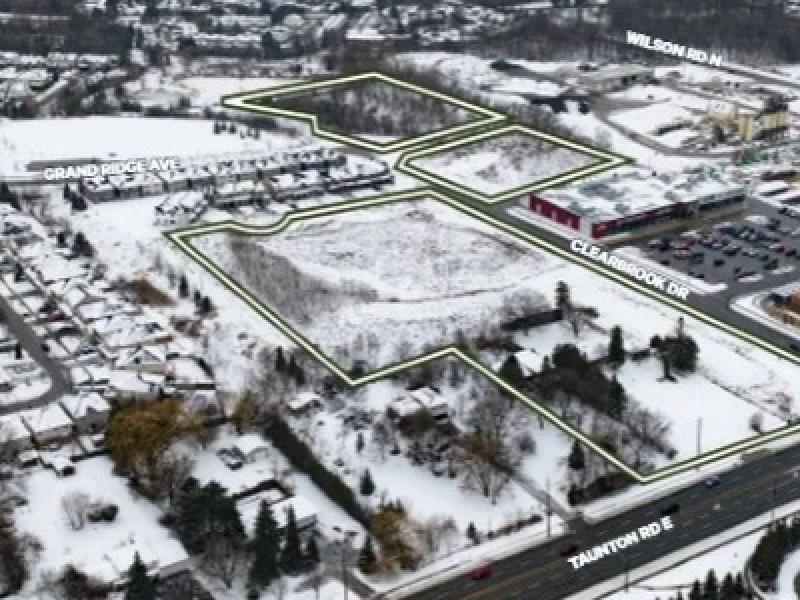
Greater Toronto Area developers are in no hurry to launch new condominium projects in a rising interest rate environment, owing to higher carrying costs and construction loans, a panel audience heard on Jan. 25 at the EY Tower in Toronto.
“Our strategy at 199 Church St. is, it’s great not having many competing launches,” said Toronto Under Construction Live panelist Derek Deutsch, the COO of CentreCourt.
The Church St. project is a 39-storey tower with 484 suites which is currently under construction.
“In 2023, we have a pipeline we’re proud of and we’ll do legwork to make sure we’re able to execute when there’s an opportunity to, like we did with 199 Church.”
The Bank of Canada’s aggressive rate-hiking campaign has thrown a spanner in the works for consumers, too, said Noorez Lalani, president of MOD Developments. Responding to panel moderator Ben Myers, president of Bullpen Research & Consulting Inc., Lalani warned deposit schedules could be affected.
“Higher interest rates affect everyone,” he said. “To use that catchphrase, we’re waiting for the other shoe to drop. I do think it’s early days and the anecdotal evidence is it’s happening a little bit right now, but it’s anecdotal.”
Panellists — who also included Jeremiah Shamess, senior vice-president of Colliers — were bullish about the city’s condo sector, present headwinds notwithstanding.
Toronto's market fundamentals strong
MOD Developments’ 55C Bloor Yorkville Residences, a high-rise at 55 Charles St. E., is slated to close in Q3 2024 and Lalani expressed confidence the uncertainty current upending the market will have subsided by then.
Shamess said in 2021 10 per cent of deals were distressed, but that fell to just below eight per cent a year later.
“We haven’t seen a massive amount of distress yet,” he said. “When you look at the data, there has not been enough distress to call it anything significant.”
Nevertheless, Toronto’s underlying market fundamentals are the most encouraging sign the city’s condo sector will weather the storm of interest rate hikes — the Bank of Canada’s 25-basis-point increase last week was its smallest in 10 months — and inflation, which was 6.32 per cent in December.
Rental rates in Toronto declined significantly following the COVID-19-induced urban exodus.
That was compounded by a municipal regulatory regime around short-term rentals that prompted a slew of investors to flood the long-term rental market with units, further driving down prices.
The trend has since reversed, with rents surging upward for much of the last two years.
As a result, the case for developing purpose-built rentals is stronger than it’s been in decades — especially with Canada Mortgage and Housing Corporation programs intended to encourage new development.
Developing rentals vs. condos
However, on a per-square-foot basis, rents still substantially lag ownership prices, and because the economics aren’t yet sufficiently strong, there’s little chance purpose-built rental buildings will supplant condominium towers any time soon.
“From the get-go, we’ve never been able to make the numbers work on personal rental to condo for a number of factors, like rents versus price per square foot,” Lalani said.
“Thirty-five per cent equity is needed for purpose-built versus 10 to 12 per cent for a condo deal.
"In condo transactions, purchasers are partners. They’re a source of funds we can use.”
Outside of downtown Toronto, purpose-built rental economics improve in parts of the GTA and Greater Golden Horseshoe, namely Mississauga and Hamilton, and Shamess believes the region will see more apartment development in the coming years.
“I think you will start to see this change a little bit more as rents have increased and the revenue side for condos decreases, and as a lot of condo developers who have made money in this business look at long-term cash flows as they look for generational-type assets,” he said.
Immigration to remain high
In November, the federal government announced Canada’s annual immigration quota would increase to half a million newcomers. Panellists agreed that’s going to put even more upward pressure on rents, all but guaranteeing yet more investor bullishness.
Myers told RENX 2023 will be marked by a wait-and-see attitude from developers, which will have ramifications for the market in three to five years when fewer completions come to market.
That, in tandem with a growing population, will push plenty of demand into the rental market, and while higher interest rates could disabuse some investors from purchasing more doors, he believes not all of them will be so easily dissuaded.
“With higher interest rates, the model looks ugly, but if rents go up as they are, the model will start to look better,” Myers said, using some recent history to forecast what might be coming over the next few years.
“We had a boom in the condo market in 2011 and in 2015 we saw rent growth go down and resale price growth go down, but 2013 and 2014 were bad years for pre-construction sales, so you fast-forward to 2016, and especially 2017 where we didn’t have much supply and we had a lot of price growth in the market.”







